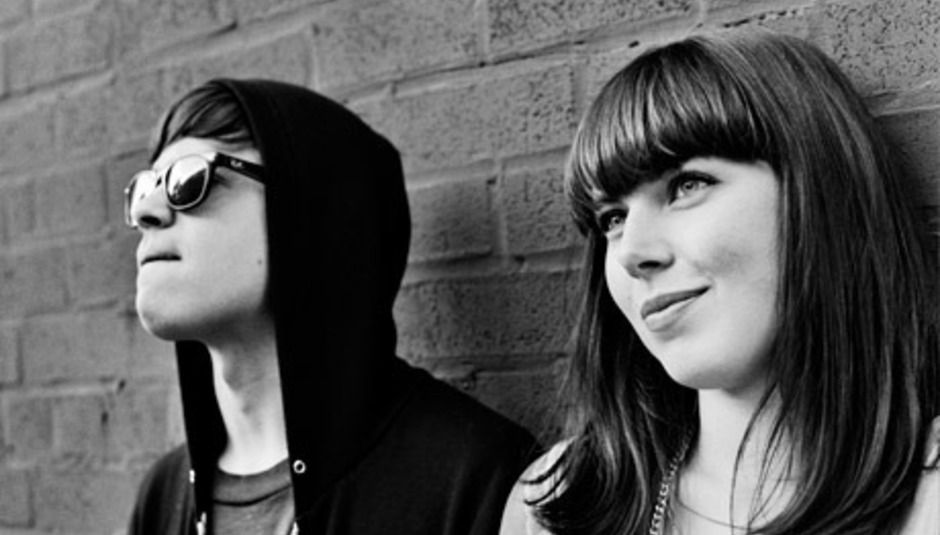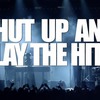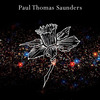In the bustling lobby of the Hoxton Hotel, businessmen rest laptops on swollen bellies as waitresses rush to refresh their drinks to the sound of an incessant Blackberry buzz. In a glass-fronted meeting room at the rear of the hotel, a man and a woman sit side-by-side peering over dark glasses across a vacant table.
Walking into the room, Derek instantly cracks an all-America smile and stands-up to shake my hand whilst apologising profusely about having to eat lunch during the interview. Alexis, even more softly spoken than usual and suffering from a sore throat, whispers a sweeter than jello, 'hello'. Sleigh Bell are less the hipster poster band you’ve been led to believe them to be.
Back in the UK following the release their sophomore album, Reign Of Terror, an album that picked-up the baton from where their debut Treats left off and turned the dial up to 11 with glossier production, slicker melodies and the beats that did a one finger salute to standardized BPM, the band are on fine form. The record, the first to be written by both members of the band (Derek sole produced Treats), is one that has solidified their relationship as a band and seen them propelled out of shoe-box venues onto a much bigger stage.
Still hyped from releasing the record, Derek leads the conversation with both he and Alexis naturally finishing off each other’s sentences as they talk about unleashing Reign Of Terror, Freddie Mercury as the ultimate front-person, and how they would have stopped at nothing to be the band they want to be.
Reign Of Terror starts with the howled screams of ‘True Shred Guitars’. Did you want it to be a deliberate declaration of intent for the album? To come out fighting?
Derek: Absolutely
Alexis: It was very intentional.
Derek: You can’t put a song like that at the beginning of a record and think that you’re not making a statement. You know, if you take it very seriously it’s an arrogant way to start a record but it’s not touch in cheek necessarily. The title ‘True Shred Guitar’ sounds kind of throwaway, but that really is my version of shred guitar. I’m a rhythm guitar player and I don’t play a million notes per second, but that doesn’t mean you can’t shred. Everything about the song is sort of over the top. You know, the record’s pretty dark... there’s a lot of really dark material lyrically, thematically and that’s not the whole story; we wanted to kick things off with something other than like, ‘D.O.A’...
Alexis: ...which was our initial our plan. We were actually going to start the record with the song that the record finishes with. We love that song ['True Shred Guitar'] and it’s always the song we open with. We always smile, we look at each other and go, ‘What? We did that?’
Derek: It’s ridiculous, I feel like we’re getting away with murder. But, it’s ok. Whenever we had friends come listen to the rough mixes they always started cracking-up whenever the crowd faded in and we thought that had to be a good thing.
What were your aspirations when you started the record? Was it in anyway informed by the relentless touring of Treats?
Derek: I wrote throughout the entire Treats touring cycle. I think we finished our last show at Bonaroo, which is 10 or 11 June 2011 and we were in the studio by the twentieth. I was just saying this, but we don’t take time off. We don’t go on vacation, I just work. There’s nothing I’d rather do with my downtime than be in the studio. That’s what we do - tour, record.
You searched for a female singer for a long time before meeting Alexis. How did you keep going? Did you ever consider giving up?
Derek: I would have died trying, I’m absolutely positive of that. It took me four years - that’s a long time - but ten years is longer... it is what it is. I’d be waiting tables harassing any and every one of my customers. If they looked my age and might potentially be music fans, I’d surely be harassing them about starting a band.
How do you think your relationship has grown since then? Considering, unlike your debut, this album was more collaborative.
Alexis: When Derek and I met he had a lot of material completed and tons of ideas which he’d been working on for years. We grew as friends and when he started working on Reign Of Terror I was there for every part of it. It was definitely more collaborative in terms of the melody work. We trust each other, he’s more comfortable coming to me with ideas and vice versa.
Derek: There’s a more fluid exchange of ideas, because we have a stronger friendship now. I write the lyrics, at least 95% of them, I write all the music, record all the music, play all the instruments and produce. I’m extremely hands-on, but I’m learning to relinquish some of that control; it takes time. I became self-reliant out of necessity as I’d never had anyone to work with, so I just remember sitting around one day thinking: ‘well, these songs aren’t gonna write themselves?’ ...That’s what I was doing in those four years, teaching myself how to write songs and they were all terrible. I threw away most of them. Right when I met Alexis my ideas became a little less stale and it was really inspiring, I feel everything picked up.
The production on the album is a lot more intense compared to the rawness of Treats. Was it important for you to up the production values? Or, was it just a case that you’d learnt more about production since then?
Derek: I operate on instincts alone, I listen to my gut. I can’t say that I made a conscious effort to make it more rich or more harmonic as that wasn’t a decision; I just went there naturally. It sounds kind of corny or pretentious, but sometimes I don’t think I really believe in a creative decision as that implies that you can somehow shape the output. In a way you can, sure you can toy with it but if you don’t have a good idea you’ve got nothing. I try to keep it really simple; the recordings sound really dense, but there aren’t a million overdubs - it’s sort of a trick.
I think it’s the density and complexity of the beats that makes the record seem more intense.
Derek: It’s a little more 'musical', which maybe for some people that equal sophistication. I don’t think that’s necessarily true and I don’t think it makes it better, it makes if different. I don’t think there’s anything wrong in the way I approached Treats from a production stand-point at all, and I know you’re not saying that - they’re just different. Reign Of Terror is fresher so it means a little more to me, but I love them both equally - they’re a part of my life.
I think for a lot of people what informs their music taste is what they were listening to when they were teenagers. Your music seems to go back to what you were doing when you were teenagers; hardcore and R & B. Do you think that’s true?
Derek: Absolutely. I’m a music fanatic and I have zero respect for genre, so the Top 40 means as much to me as White House or Wolf Eyes or any number of noise projects. Again, that sounds kind of pretentious but it’s true and that’s obviously a product of the internet as everything’s available. That marriage is super natural for me, it’s the most familiar thing in the world. Sometimes people are like ‘you’re combining these disparate elements’, but to me there’s harmony there and they make perfect sense.
To me your songs stick to the traditional pop formula of being anchored by a really strong melody, which I think in current pop songs is lacking as everything is really high in mix and the melody is, less about having an actual melody, and more about sloganeering. Your music in comparison takes the 90s pop approach to song structure and then mixes it with harder, heavier sounds.
Derek: That’s totally fair, you’re the first one to say that and it’s actually pretty true.
Alexis: I think a lot of pop music today is so distracting and it’s trying to go in so many different directions. A lot of times it’s great, but I think a lot of stuff we were listening to - like the Cranberries, Cyndi Lauper - a lot of those female vocals are genius but they’re incredibly straight forward. There’s not a lot of flowery intricacies, which you have going on these days. Our favourite vocalists are those that do a lot with a small amount of notes.
The melodies and harmonies on the record have developed substantially since Treats, but not in an isolating way where they’ve become too complex and overpower the song; it has the right balance, like on ‘Comeback Kid’.
Derek: That’s the most stand-out track for us and it’s the most collaborative thing. I gave her the instrumental and I had the lyrics and we did it in a day or two and I was like, ‘this is your song’. They’re all our songs, but that one’s pretty fifty-fifty - it’s my instrumental and her vocal. I think we’ll probably do everything that way from here on out as the melody is so much better than anything I’ve ever done or think I could ever do. I don’t mean to sit here and flatter you [looking at Alexis], but you’ve got to take it this time!
Alexis: At the same time I could never write anything like ‘Infinity Guitars’ because my brain doesn’t think that way. I think your brain as a singer thinks differently. To me ‘Comeback Kid’ makes sense to me as a singer, whereas ‘Infinity Guitar’ it’s not a singer’s melody it’s incredibly percussive. It’s very much from his brain, so I could never do anything like that. I think it’s best to continue the balance.
You now have a touring guitarist. Would you ever consider adding any more permanent members to the band?
Derek: We have a touring guitarist and that’s it. His name is Jason Boyer; he’s a really good friend of ours and he does his own band called Nerve City who are incredible. But, no we have no intentions of being a band; we’re not going to have bongo players or keyboard players onstage, ever! You know what, if you’re like LCD Soundsystem you can get away with it because that’s like eight or nine of the most talented people on the planet playing together, but I doubt I could arrange anything like that and nor would I want to because that’s their thing. I’m obsessed with symmetry as well, so now she’s in the middle I feel like there’s focus...I feel like it looks and sounds really good; it’s just fun with the three of us. We’ve toured together just the two of us for sixteen months and this makes it fresh again.
I saw you at the Macbeth and the Old Blue Last when you first came to the UK and in those small venues your music has a massive impact. How’s your sound translating from those small venues to now playing larger capacity venues?
Derek: It all depends on the audience. I’d rather play to ten fanatical fans than ten thousand people with their arms crossed, but ten thousand people jumping-up and down is also pretty amazing. As long as they’re with us and are participating then the size is sort of irrelevant. I think our sound translates better the bigger the system; we’ve done some festivals where we’ve played to five-ten thousand people and those have been some of our best shows, but then like the Macbeth show was also a stand-out. It is what it is and I don’t want to insult the venue as it’s awesome, but it’s clearly more about energy and less about sound which is fine - it’s a good trade-off.
Live, you have incredible energy onstage with Alexis completely getting involved with the audience. Is there anyone you look up to as a front person? How important is it for you to have that level of engagement?
Derek: Freddie Mercury, seriously.
Alexis: I grew up loving people who were real showman, whether it was watching Sam Cooke, David Bowie or Cyndi Lauper; I definitely appreciate people who get up there and really give 100%. I just have a low attention span a lot of time with live music, so I would much prefer to see somebody who’s putting themselves out there rather than someone passively participate with the crowd. Not that there’s not wonderful music created that way, but I’m just always more intrigued by a hardcore show or a front-man who’s encouraging mayhem.
Derek: I agree, completely. I’m not the biggest fan of live music, so there has to be something intense happening in the room as I’ll get bored or just listen to the record.
Alexis: It’s also, like in a more selfish sense, it’s the way we have more fun if we’re able to bring the crowd along with us - there’s nothing like it.
Some critics discredit you as being a ‘hipster band’ and that live you have to rely on a lot of programming rather than using live instruments. What's your response to that?
Derek: As far as the programming thing, we’re an electronic band. It throws people off because there’s guitars on-stage and people associate guitars with bands. It’s rare to have guitars with electronics, well in a heavy music context there’s New Order, but this is literally a drum machine, some 808s, a guitar and a vocal.
I’d be lying if I said that Jack White wasn’t an influence on me; everything he’s about his unwillingness to compromise, how skeletal the White Stripes are is all very important to me. Limitations... we have the same take on them and how useful and important they can be. If we hired a drummer that would be a massive compromise as I can’t replace samples like this [two short claps] with a rock snare; it changes the character of the band. As a band with a drummer (we’ve practiced with them) it sounds a lot like rap-rock and nothing against those bands, but we’re not rap-rock; I use samples instead of a drummer. To our critics, if you want to go see a band, see a band, maybe don’t come and see us.
What I like about the record is the dark and the light, which is summed up nicely in the video for ‘Comeback Kid’ with Alexis jumping on a large bed whilst smiling and holding gun. What was the concept for the video?
Derek: That aesthetic, everything, those are just my sensibilities. ‘Comeback Kid’ I co-directed with a friend, but that’s my video. I’d say it’s my treatment, but there’s no treatment. My treatment was ‘Let’s go to Florida’. That’s shot in the house where I grew-up in Florida... that’s my mother’s robe, she’s jumping on my mother’s bed with my rifle. That’s my pool, that’s my living room, it’s my mum’s home. I was like, ‘let’s go to grocery store, let’s walk down the isle and film it’. Sometime, the crew were scratching their heads, but we edited and when we were done my buddy Gregg Cohen who co-directed it with me was like, ‘I get it!’ I was trying to create images I was comfortable with, we just make it up as we go along and I think that keeps it fresh and keeps it from being overwrought. We don't think too much about things, we just execute.
Reign Of Terror is out now.






















